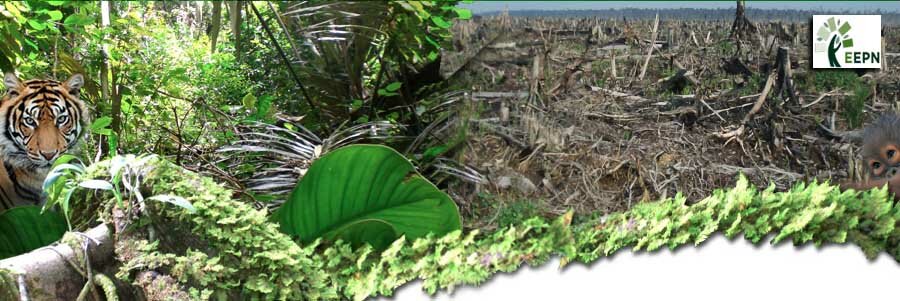
Wednesday, 21 December 2011 12:46
Asia Pulp & Paper (APP) is planning to build a pulp mill in South Sumatra, Indonesia. The mill will have a capacity of between 1.5 and 2.0 million tonnes per year of bleached hardwood kraft (BHK) pulp, and about 0.5 to 1.0 million tonnes per year of tissue paper, which would make it the largest single pulp line in the world. Startup for the mill is being targeted for 2015-16. The mill will be built in the village of of Jadi Mulya, sub-district of Air Sugihan, in Ogan Komering Ilir (OKI) district in South Sumatra Province. In October 2013 APP obtained a US$1.8 billion loan from the China Development Bank. The company plans to invest US$ 2.6 billion in the mill, with the remaining US$800 million being funded by capital raised by the shareholders.In March 2015,a further $700 million loanwas approved as part of a larger $1.5 billion investment package agreed between Joko Widodo and China's Prime Minister Li Keqiang.
The OKI mill is co-owned by APP subsidiaries Pindo Deli Pulp and Tjimi Kimia, each holding 47.58% of the shares, with the remaining shares being controlled by Muba Green Indonesia.
The new APP millwill be supplied by the surrounding plantations, mainly from PT. Bumi Mekar Hijau, Sebangun Bumi Andalas and PT. Bumi Andalas Permai, as well as from HTI in the District of Musi Banyuasin such as PT. Rimba Hutani Mas, PT. Bumi Persada Permai, PT. Sumber Hijau Permai and PT. Tri Pupa Jaya. According to the environmental assessment documentation, PT. OKI has a supply agreement with all of these companies.
APP has stated that the OKI Mill will only use plantation wood for its raw materials and that it is committed to zero deforestation in its supply chain, andclaimed that anindependent study confirmed that the group has sufficient plantation resource to meet the pulp requirements of its existing mills as well as its future mill in OKI, South Sumatra.However, the study has never been made public, and the Rainforest Alliance, which was responsible for auditing it, noted that “a definitive answer of whether APP has enough plantation wood supply based on estimates from data gathered and analyzed 1.5 years ago is not possible”. The auditor added that the study only confined its scope for the period to 2020, giving no information about the future wood supply. Future wood supply is compromised because in the mid to long term most of Southeast Asia’s drained peatlands are projected to suffer from regular flooding. When drained, peatlands release carbon into the air contributing to climate change and leading to peatland subsidence. Most of Southeast Asia’s peatlands have their base below mean sea or river level leading to flooding and loss of productivity if drainage and subsidence continues. The OKI plantations have a long history of subsidence and suffer from floods regularly. About half of APP’s plantations are located on peatlands.
n Autumn 2015, APP has been identified as one of the top companies responsible for the fires that have been ravaging Sumatra and Borneo, and an APP related company in South Sumatra (PT Bumi Mekar Hijau - BMH)) had itslicency suspended.The fires, beside creating a smoke and haze crisis that is affecting the entire Southeast Asia region and has impacted the health of millions of people in Indonesia and neighbouring countries and has led to several deaths and the release of more than one billion tonnes of CO2, have also had an impact on APP plantation production and wood supply.
As a consequence of the forest fires, the company may now be facing a further fibre shortage that makes it unclear whether it will be able to supply the new mill. In February 2016 A coalition of Indonesian NGOs from South Sumatra released a report revealing that 26% of APP’s total planted area in the province has been lot in the forest fires in the province only. The report raises serious questions about how this significant plantation loss will influence the fiber supply for APP’s new mega-scale pulp mill, PT. OKI (2,5 tonnes pulp per year), which the company has announced will start operation later in 2016. APP never made public the report stating they ave enough fibre to feed the new mill, but the Rainforest Alliance, that could review it well before the fires, noted that the “a definitive answer of whether APP has enough plantation wood supply based on estimates from data gathered and analyzed 1.5 years ago is not possible”.
Joomla templates by a4joomla

